
Urge Overkill is an American alternative rock band, formed in Chicago, consisting of Nathan Kaatrud, who took the stage name Nash Kato (vocals/guitar), and Eddie "King" Roeser. They are widely known for their song "Sister Havana" and their cover of Neil Diamond's "Girl, You'll Be a Woman Soon", which was used in Quentin Tarantino's Pulp Fiction. Oui, their latest album, was released in 2022.
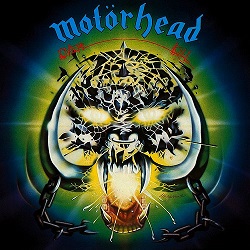
Overkill is the second studio album by English rock band Motörhead, released in March 1979. It was the band's first album with Bronze Records. Kerrang! magazine listed the album at number 46 among the "100 Greatest Heavy Metal Albums of All Time". American thrash metal band Overkill was named after this album.

St. Valentine's Day Massacre is an EP recorded by members of Motörhead and their Bronze Records labelmates Girlschool, under the moniker Headgirl. It reached number five in the UK Singles Charts in 1981.

"Overkill" is a song by English rock band Motörhead. It was released in 7" and 12" vinyl pressings in 1979. It is backed with B-side "Too Late Too Late" which appears on the CD re-issues of the Overkill album. Early copies came with an "Overkill" badge. The single reached number 39 on the UK Singles Chart.

"No Class" is a song by the British heavy metal band Motörhead. It was released in 1979 in 7" vinyl pressings. The song first appeared on the 1979 album Overkill, and became one of the "cornerstones" of the classic 1981 live album No Sleep 'til Hammersmith. It is one of the band's "anthems".

Music from the Motion Picture Pulp Fiction is the soundtrack to Quentin Tarantino's 1994 film Pulp Fiction, released on September 27, 1994, by MCA Records. No traditional film score was commissioned for Pulp Fiction. The film contains a mix of American rock and roll, surf music, pop and soul. The soundtrack is equally untraditional, consisting of nine songs from the film, four tracks of dialogue snippets followed by a song, and three tracks of dialogue alone. Seven songs featured in the film were not included in the original 41-minute soundtrack.
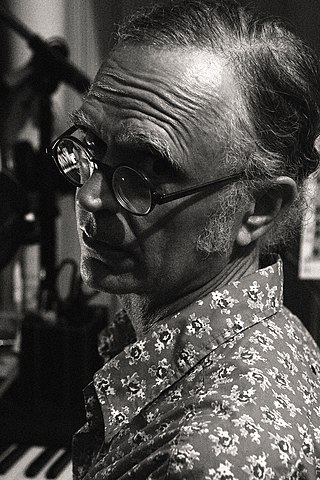
Mark Kramer known professionally as Kramer, is a musician, composer, record producer and founder of the New York City record label Shimmy-Disc. He was a full-time member of the bands New York Gong, Shockabilly, Bongwater, has played on tour with bands such as Butthole Surfers, B.A.L.L., Ween, Half Japanese and The Fugs, and has also performed regularly with John Zorn and other improvising musicians of New York City's so-called "downtown scene" of the 1980s.
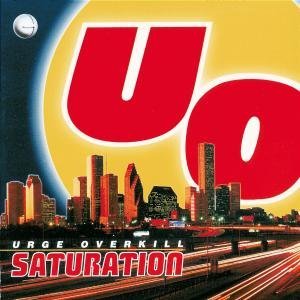
Saturation is the fourth album by American alternative rock group Urge Overkill, released in 1993 and produced by the Butcher Bros. Saturation was Urge Overkill's debut on Geffen Records, and a deliberate attempt at a hit record. The label released "Sister Havana" and "Positive Bleeding" as singles in the US and Europe. "Sister Havana" charted highly on both the modern rock and mainstream rock charts, peaking at numbers 6 and 10, respectively, while "Positive Bleeding" became a minor rock radio hit. As of 2013, Saturation has sold 277,000 copies in the US, according to Nielsen Soundscan.
"Laisse tomber les filles" is a French song written by Serge Gainsbourg and originally performed by France Gall in 1964. The song was a major hit in France, peaking at number 4 according to Billboard magazine.
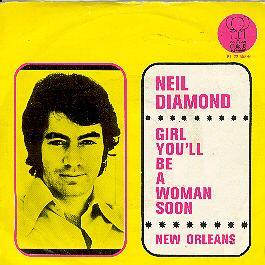
"Girl, You'll Be a Woman Soon" is a song written by American musician Neil Diamond, whose recording of it on Bang Records reached number 10 on the US pop singles chart in 1967. The song enjoyed a second life when it appeared on the 1994 Pulp Fiction soundtrack, performed by rock band Urge Overkill. Other versions have been recorded by Cliff Richard (1968), Jackie Edwards (1968), the Biddu Orchestra (1978), and 16 Volt (1998).

Stull is an unincorporated community in Douglas County, Kansas, United States. Founded in 1857, the settlement was initially known as Deer Creek by Pennsylvania Dutch settlers until it was renamed after its only postmaster, Sylvester Stull. As of 2018, only a handful of structures remain in the area.

Big Apple Rappin' is a 2006 compilation album released on Soul Jazz Records. The album is a compilation of the early days of New York hip hop by Johan Kugelberg, who had collected early hip hop material, specifically records flyers and fanzines and other memorabilia with the idea to donate them to an academic institution. The music Kugelberg gathered for the compilation surrounded hip hop music released around the period "Rapper's Delight" became a hit song. The music is predominantly hip hop with a disco backing tracks which Kugelberg described as "the first great records." Along with the music, photography and flyers were compiled from the era, as well as interviews with DJs and rappers such as Grandmaster Caz and Glen Adams.

"Twelve Thirty" a.k.a. "Twelve-Thirty ", is a song by the Mamas & the Papas.

Rock & Roll Submarine is an album by alternative rock band Urge Overkill, released in 2011. It was their first album in sixteen years.
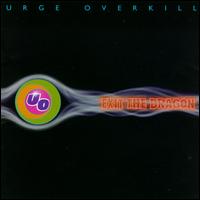
Exit the Dragon is the fifth album by American alternative rock group Urge Overkill, released in 1995. Exit the Dragon is characterized as being a darker album than their previous album, Saturation. It was their final album until 2011 saw the release of Rock & Roll Submarine, sixteen years after Exit the Dragon.

The Supersonic Storybook is the third album by American alternative rock group Urge Overkill. It was released on March 15, 1991 on Touch and Go Records, and was produced by Steve Albini, a former roommate of the band. The album was named by Material Issue's Jim Ellison, who was a good friend of the band.
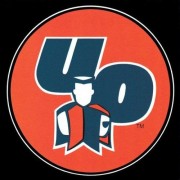
Americruiser is the second album by American alternative rock group Urge Overkill, released in 1990.

Jesus Urge Superstar is the debut studio album by the alternative rock band Urge Overkill. It was released in 1989. The album is noted for its ironic 1970s-worshipping aesthetic, which would become a staple of the band’s core identity.
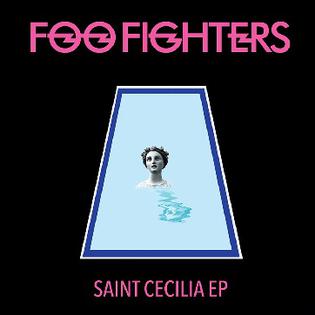
Saint Cecilia is an EP by American rock band Foo Fighters. It was released as a free digital download on November 23, 2015. Initially intended as a sign of gratitude to the group's fans, the EP was also dedicated to the victims of the terrorist attacks in Paris. A single from the EP, "Saint Cecilia", peaked at number 3 on the Billboard Mainstream Rock Songs chart in 2016.

Once Upon a Time in Hollywood (Original Motion Picture Soundtrack) is the soundtrack album to Quentin Tarantino's 2019 motion picture Once Upon a Time in Hollywood. The film also contains numerous songs and scores not included on the soundtrack.



















